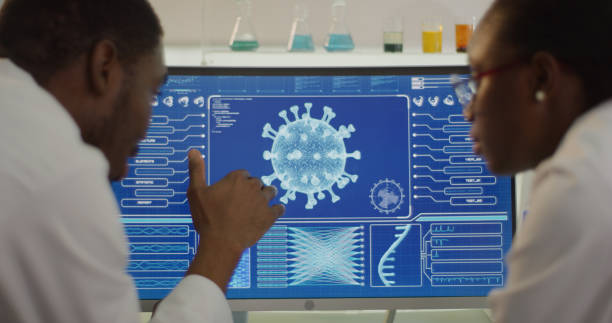In recent years, antimicrobial resistance (AMR) has emerged as a significant global health challenge. This phenomenon occurs when microorganisms—such as bacteria, viruses, fungi, and parasites—evolve and become resistant to the medications designed to treat infections they cause. As a result, previously treatable infections become harder to manage, posing serious risks to public health and complicating medical treatments.
Why is Antimicrobial Resistance a Major Concern?
The implications of AMR are profound and far-reaching. When infections become resistant to antibiotics or other antimicrobial agents, the treatment options become limited, leading to several critical issues:
Prolonged Illness and Suffering: Infections that are resistant to treatment can lead to extended periods of illness, discomfort, and complications. Patients may experience longer recovery times, which can impact their quality of life.
Increased Medical Costs: Treating resistant infections often requires more expensive and intensive treatments. This not only places a financial burden on patients but also on healthcare systems, leading to increased overall healthcare costs.
Higher Mortality Rates: In severe cases, AMR can lead to increased mortality. Infections that were once manageable can become life-threatening, especially for vulnerable populations such as the elderly, infants, and those with weakened immune systems.
Threat to Advanced Medical Procedures: The effectiveness of critical medical procedures such as surgeries, cancer treatments, and organ transplants relies on effective antibiotics to prevent or treat infections. AMR jeopardizes the success of these procedures, posing a risk to patients undergoing such treatments.
What Are the Primary Causes of Antimicrobial Resistance?
Several factors contribute to the development and spread of antimicrobial resistance:
Overuse of Antibiotics: The unnecessary or improper use of antibiotics is a significant driver of AMR. When antibiotics are prescribed for viral infections or used inappropriately, it encourages the survival and proliferation of resistant bacteria.
Poor Infection Control Practices: Inadequate hygiene and sanitation practices can facilitate the spread of resistant microorganisms. In healthcare settings, lapses in infection control measures can contribute to the transmission of resistant strains.
Misuse of Antibiotics in Agriculture: The use of antibiotics in livestock for growth promotion rather than treating illness can contribute to the development of resistant bacteria. These resistant strains can then be transmitted to humans through the food chain.
Global Travel and Trade: The movement of people, animals, and goods across borders can facilitate the rapid spread of resistant microorganisms. This global interconnectedness means that resistance can quickly become a widespread problem.
How Can We Combat Antimicrobial Resistance?

Addressing AMR requires a multi-faceted approach involving individuals, healthcare providers, policymakers, and the global community. Here are some key strategies to combat AMR:
- Use Antibiotics Wisely: Antibiotics should be used only when prescribed by a healthcare professional and only for the specific infection for which they are intended. Avoid self-medicating and never use antibiotics left over from previous treatments.

- Improve Hygiene and Sanitation: Proper handwashing, maintaining cleanliness in healthcare settings, and ensuring good sanitation practices can help prevent the spread of infections and reduce the risk of AMR.

- Strengthen Policies and Regulations: Governments and health authorities need to implement and enforce regulations to manage the use of antibiotics in both human medicine and agriculture. This includes setting standards for antibiotic stewardship and monitoring resistance patterns.
- Support Research and Development: Investing in research to develop new antibiotics and alternative treatments is essential for staying ahead of resistant strains. Supporting innovation in the field of antimicrobial agents can provide new tools to combat resistant infections.
Stay Informed and Practice Responsible Antibiotic Use
Combating antimicrobial resistance is a collective effort that requires awareness, education, and responsible behavior. By understanding the impact of AMR and following guidelines for antibiotic use, individuals can contribute to preserving the effectiveness of these critical medications.
In summary, antimicrobial resistance represents a serious threat to global health. By using antibiotics responsibly, improving infection control practices, supporting vaccination efforts, enforcing regulations, and investing in research, we can work together to address this challenge and safeguard the future of effective infection treatment.


